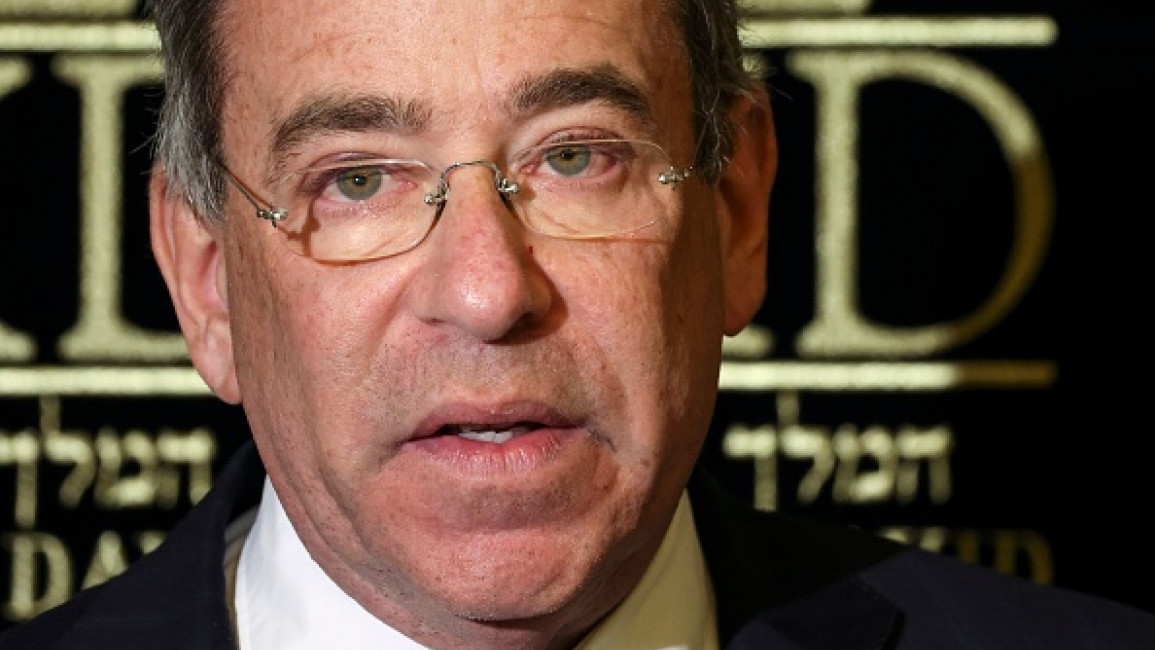US Ambassador to Israel rejects Religious Zionism party's demand to 'annexe' West Bank settlements
The US Ambassador to Israel, Tom Nides, warned that extending Israeli law to Jewish settlements in the occupied West Bank would be a step closer to annexation and the US objects to such a move.
Speaking to Israeli radio Kan Bet on Thursday, Ambassador Nides said that the US would "push back against any attempt at annexation."
"We don't support annexation. It's not just us; it's most countries," he added.
Bezalel Smotrich, the leader of the Religious Zionism party, has demanded that Jewish settlements in the Israeli-occupied West Bank be governed by the Israeli government rather than the Israeli Army's Civil Administration branch.
Smotrich's demand comes as coalition talks to form a new Israeli government are underway. The Religious Zionism party is an alliance of three parties, the Religious Zionist Party itself, Itamar Ben Gvir's Jewish Power party and Noam.
US Ambassador to Israel Nides tells Kann news that the US "will fight any attempt to annex" WB territory. Trouble is - the US might say no to annexation, de jure, but is turning a blind eye to annexation, de facto, which is proceeding each and every day. https://t.co/dshj0kCIkO
— Ron Skolnik (@Ron_Skolnik) November 9, 2022
In consultations about the next government on Wednesday, Israeli President Isaac Herzog warned that "the whole world is worried" about the possible inclusion of ultranationalist Itamar Ben Gvir in the new ruling coalition.
Ben Gvir - who wants to be police minister - was convicted in 2007 of racist incitement against Arabs and support for Kach, a militant group blacklisted by Israel and the United States.
Following elections to the Twenty-Fifth Knesset, opposition leader and former Prime Minister Benjamin Netanyahu, as expected, was tapped by the Likud, Shas, United Torah Judaism and the Religious Zionist Party to form a government in talks with Israeli President Isaac Herzog.
The Yesh Atid party recommended its leader and current PM, Yair Lapid, for the task.
Representatives of National Unity decided not to make a recommendation to President Isaac Herzog for any member of the Knesset to form a government.
In a statement recently, the Palestinian ministry of foreign affairs warned against the inclusion of Religious Zionism leaders in the next Israeli government.
"We demand the international community to reject and condemn the Israeli fascism represented by Ben Gvir and Smotrcih and to oppose their positions which are anti-peace."
Ben Gvir, who heads the Jewish Power party, also supports Jewish prayer on a flashpoint Jerusalem holy site, a position that stokes regional tensions.
The United States has, until now, publicly reserved judgement pending the new coalition's formation, a position that Nides repeated on Thursday while emphasizing the "unbreakable ties" between the two countries.
"Until I know and we know who has what positions and the positions they take, then we'll determine what conversations will take place", he said.



